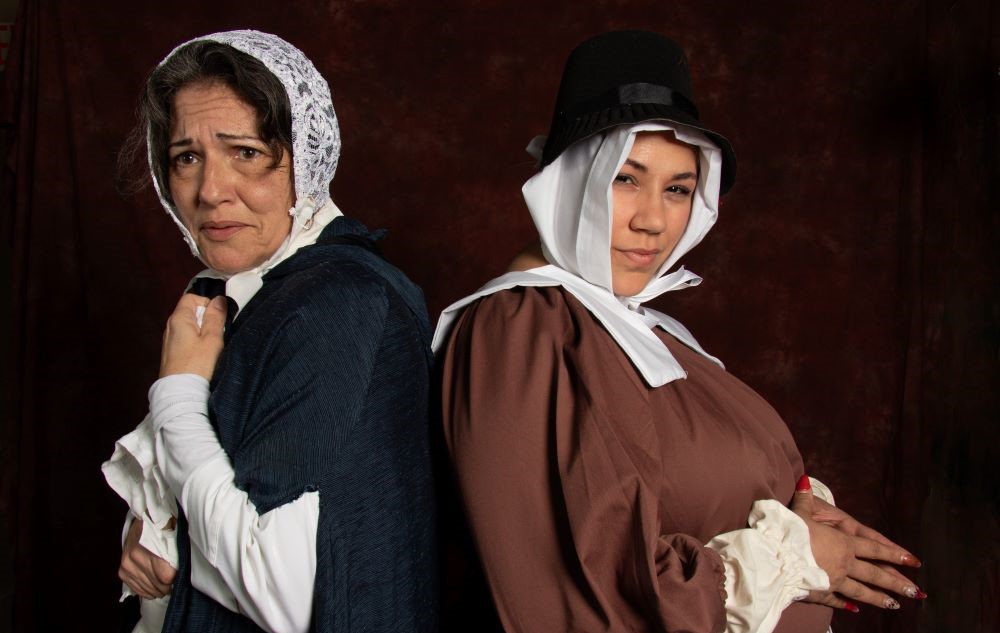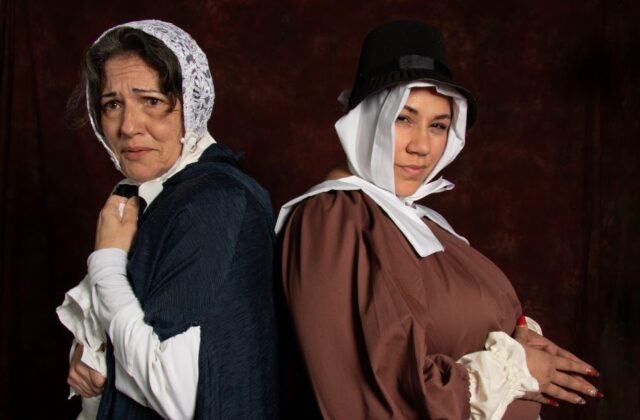The Spell is Broken in 2023
State and Church Absolve 12 People Accused of Witchcraft in Colonial Era
By Patricia Platt
It has been over 370 years since Connecticut conducted the first witch trials in New England, but their shadow still reaches into 2023.
Between 1647 and 1663, at least 34 people were accused of witchcraft in the Connecticut and New Haven colonies, and 12 were convicted. Eleven of those, nine women and two men, were executed by hanging. In May 2023, at the behest of the Connecticut Witch Trial Exoneration Project, Connecticut state senators voted to absolve the convicted “witches.”
However, the “witches” remained excommunicated from the colonial Congregational Church. In October 2023, the 12 Connecticut victims were reinstated into the church by Chris Solimene, a Norfolk resident and pastor of the Avon Congregational Church, UCC. The ceremony took place at the end of a play that reenacted a 17th-century witch trial.
Solimene wrote and directed the play, called “The Witch Tryal,” based on primary source documents provided by Heidi Sweeney, an Avon parishioner who is related to Susannah Martin, a victim of the Salem witch trials in Massachusetts. The play re-creates Martin’s story. The historically accurate words of the witnesses and the judge reflect the harsh lives of the accusers and the accused.

Marilyn Mangini (left) and Carly Henderson (right) play women accused of witchcraft in “The Witch Tryal,” a play written by Norfolk’s Chris Solimene.
Solimene explained that the lives of early settlers were plagued by epidemics, cold winters and starvation. “Superstition and fear of all that goes bump in the night held sway in our early foremother and father’s lives. They associated all that went wrong to the devil and the devil’s agents. But who were these agents? In the 17th century, it was the most vulnerable and those who didn’t follow the flock-like mentality: women, widows (often with a bit of desirable land), and those with a wider worldview than what the Puritan clergymen espoused as appropriate behavior.”
At her trial, Susannah Martin was accused of causing cows to die through curses, of flying through the sky and appearing in people’s dreams to bite them. The famed clergyman Cotton Mather recorded the trial testimony and defended the verdict. The judge denied Martin counsel and stated that she was “one of the most impudent, scurrilous, wicked creatures of this world” and that he regretted that her “husband is no longer here to curb your sharp tongue,” adding that “there is no higher court then we here today.”
Although the judge and jury believed that true witches could not quote scripture, which Martin was able to do, her defense was ignored, and she was unanimously sentenced to hang. Sweeney commented that “the judge and jury had already made up their minds; truth had no role in this courtroom.” Kimberly Black, a representative of the Connecticut Witch Trial Exoneration Project who presented the resolution to the Connecticut Senate, said, “Misogyny and deviation from Puritan norms played a large part in the trials and in denying defendants their rights and dignity. It was about destroying feminine identity so patriarchy could rule.”
Members of the Avon Congregational Church performed “The Witch Tryal” at the church this past October. In the play, the narrator ties the message of the program to our present day, warning, “Our past need not be our destiny, but do heed the message of ‘The Witch Tryal.’ Remember, future generations, that ignorance and fear can conspire to repeat these dark chapters. Injustice can still lurk, shrouding innocence with sinister shadows. I beseech you: Cherish the light of knowledge, for even now, the specter of this persecution may still linger.”
At the end of the performance, each actor came forward and stated the name of one of the Connecticut victims, a bell was rung, and that person was reinstated into the church. Solimene commented, “How could we not acknowledge our complicity and even, if poetically, make reparations by reinstalling all the accused and executed here in our former New England Colony of Connecticut to full community with good standing? There is healing power in naming a wrong and sharing in the redemptive power of collective acknowledgement.”

